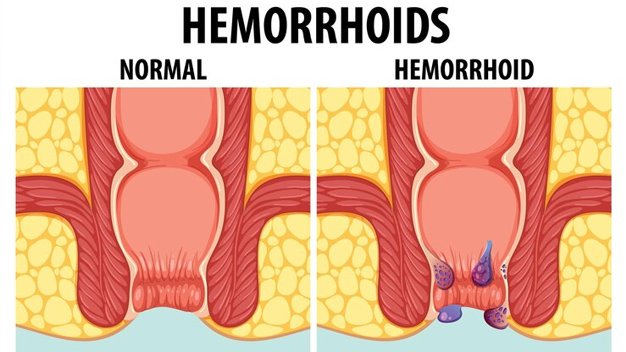
Are you suffering from haemorrhoids? Are you looking for assistance that can make it easy for you to deal with it? You have certainly landed on the right page. We are here to help you understand all the aspects related to the respective issue and make it easy for you for you to get through it.
Haemorrhoids, also known as piles, are swollen and inflamed veins located around the anus or in the lower rectum. They commonly occur during pregnancy or constipation and cause discomfort. Understanding what haemorrhoids are and seeking help from experts can ease symptoms.
What are Haemorrhoids?Haemorrhoids develop when the veins or blood vessels in and around the anus and lower rectum swell up and irritate surrounding anal tissue. Both internal and external haemorrhoids can form. Internal haemorrhoids affect tissues inside the anal canal, while external haemorrhoids develop under the skin close to the anal opening.
Causes of HaemorrhoidsSome common causes that increase pressure inside the anal veins and risk of haemorrhoids include:
- Straining during bowel movements due to constipation
- Long sitting on the toilet
- Pregnancy due to increased pressure on veins
- Obesity
- Chronic diarrhoea or inflammatory bowel conditions
- Inherited tendency
- Age as risk increases with age
Common signs and symptoms may include:
- Itching or irritation in the anal area
- Pain or discomfort during bowel movements
- Anal pain, tenderness or soreness
- Bleeding with bowel movements
- Swelling or lumps near the anus that can extend outside during flare-ups
Consult the Best gastroenterologist in Bangalore if haemorrhoids persist for over a week, produce significant symptoms or are accompanied by other health issues like painful bowel habits, weight loss or anaemia. Medical evaluation rules out other causes. Early diagnosis and proper treatment prevent complications.
Medical Evaluation and TestsA doctor examines the anal region for visual signs. A digital rectal exam may be performed to check for abnormalities. Anoscope uses a lighted scope to visualize internal haemorrhoids. Blood tests identify anaemia from bleeding. Other tests confirm if haemorrhoids are causing issues.
Haemorrhoids TreatmentTreatment depends on symptoms severity but may involve:
- Dietary and lifestyle changes like high-fibre diet, hydration and exercise
- Over-the-counter haemorrhoid creams containing hydrocortisone
- Warm water sitz baths
- Ice packs applied for 20 minutes 2-3 times daily relieve swelling
- Non-surgical procedures like rubber band ligation performed by the Best gastroenterologist Hospital in Bangalore controls severe bleeding.
- For very large haemorrhoids, haemorrhoidectomy surgery at expert facilities excises and removes piles.
- Office-based procedures use infrared light coagulation or cryotherapy to destroy haemorrhoid tissue.
Maintaining bowel regularity, lighter bulkier stools reduce straining. Following a diet rich in fibre-dense foods keeps digestive system healthy. Drinking sufficient water keeps stools soft. Applying petroleum jelly to the anal opening after going prevents tissue irritation.
Final TakeHaemorrhoids, though undeniably unpleasant, respond well to symptomatic measures and accurate treatment. The expert attention of a gastroenterologist in Bangalore is invaluable in confirmed diagnosis and instituting the appropriate cure as offered at Deepasri Hospital for complete recovery. Prioritizing patient comfort and long-term outcomes.

